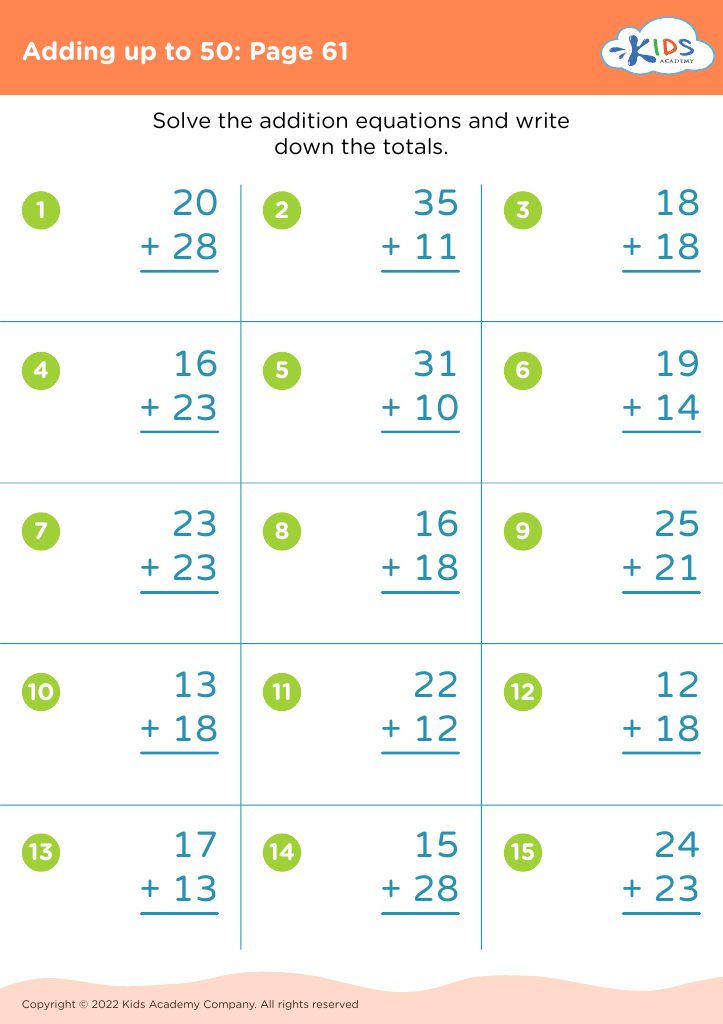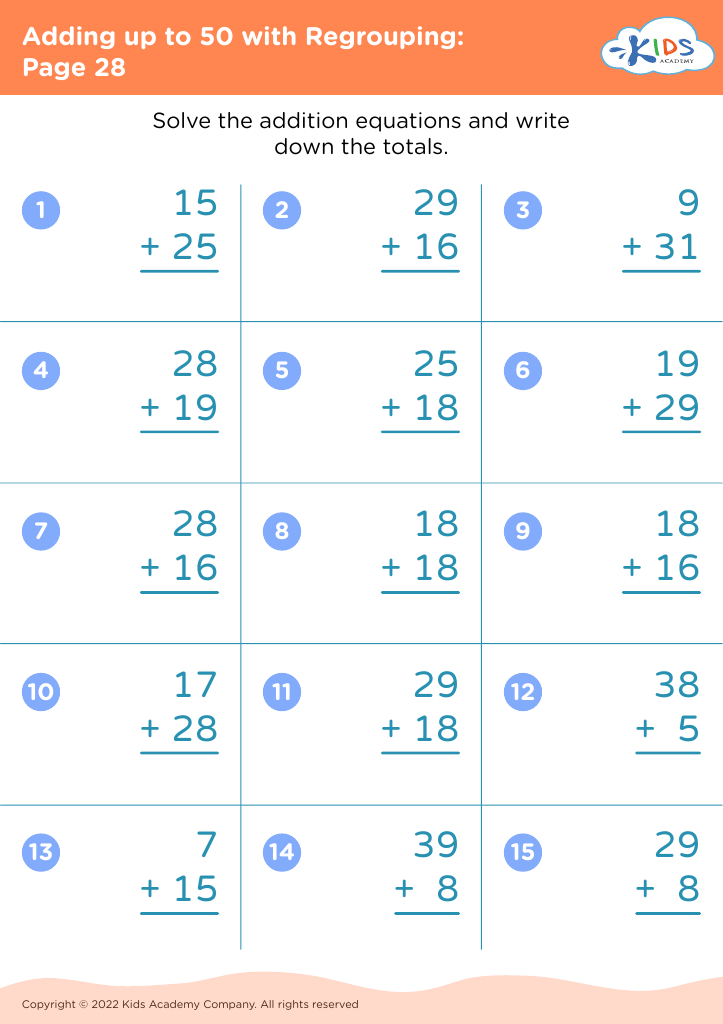Addition skills Adding up to 50 Worksheets for Ages 4-8
7 filtered results
-
From - To
Boost your child's addition skills with our interactive "Adding Up to 50 Worksheets" designed specifically for ages 4-8! These engaging worksheets provide a fun and effective way to reinforce basic math concepts through colorful images and challenging exercises. Tailored to different learning levels, students can practice single and double-digit addition, perfecting their arithmetic in an enjoyable manner. Each worksheet promotes critical thinking and problem-solving, making it an essential resource for parents and educators. Unlock the joy of learning while helping your child confidently master addition up to 50. Download now and support their math journey today!
Addition skills are foundational for young learners, particularly for those ages 4-8, as they set the stage for future mathematical understanding. Mastery of addition, specifically up to 50, enables children to gain confidence and fluency in mathematical concepts that are critical not only for academic success but also for everyday problem-solving.
Firstly, addition skills enhance cognitive development, improving children's logical reasoning and critical thinking abilities. As they learn to add, they develop the ability to recognize patterns and relationships among numbers, which can influence their overall academic performance.
Moreover, acquiring proficiency in addition fosters a positive attitude towards mathematics. When children can confidently solve problems involving numbers up to 50, they are more likely to engage in more complex mathematical concepts in later grades without fear or anxiety.
Additionally, these skills have practical significance. Everyday activities like shopping, cooking, or game-playing often require basic addition, equipping children for real-world scenarios.
Lastly, the age of 4-8 is crucial for skill acquisition; it is when children are most receptive to learning new concepts. Thus, focusing on addition during this developmental period can lay a strong mathematical foundation for years to come.



















